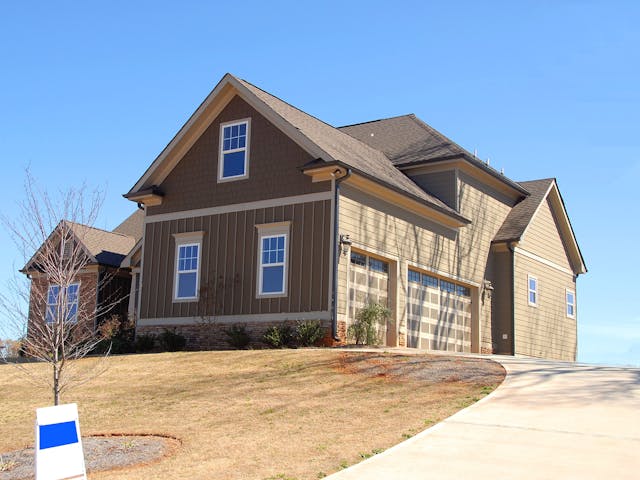Property management is an essential aspect of real estate that can make or break an investment. Whether you’re a seasoned property manager or just stepping into this world, understanding the various types of property management is crucial. Each type offers unique benefits and challenges that can significantly impact your success. Let’s dive into the different types of property management and what they mean for you.
1. Residential Property Management
Residential property management deals with properties where people live. This includes single-family homes, apartments, condos, and townhouses. As a residential property manager, your main job is to ensure the property is well-maintained and that tenants are happy.
Key Responsibilities:
Tenant Management: Finding and screening tenants, handling lease agreements, and addressing tenant complaints.
Maintenance and Repairs: Scheduling regular maintenance, responding to repair requests, and ensuring the property is safe and habitable.
Rent Collection and Financials: Collecting rent, handling late payments, and managing the property’s budget and expenses.
Why It Matters:
Happy tenants are more likely to stay longer, reducing vacancy rates and ensuring a steady income stream. Proper maintenance can prevent costly repairs down the line and keep the property value high.
2. Commercial Property Management
Commercial property management involves managing properties used for business purposes. This includes office buildings, retail spaces, warehouses, and industrial properties. Managing commercial properties requires a different skill set compared to residential properties.

Key Responsibilities:
Lease Negotiations: Commercial leases are often more complex and longer-term than residential leases. Negotiating favorable terms is crucial.
Tenant Relations: Building strong relationships with business tenants, addressing their specific needs, and ensuring compliance with lease terms.
Property Upkeep: Maintaining the property to meet the needs of businesses, including safety regulations, accessibility, and technological infrastructure.
Why It Matters:
Successful commercial property management can lead to long-term, stable tenancies and higher rental incomes. A well-maintained commercial property attracts reputable businesses, enhancing the property’s reputation and value.
3. Industrial Property Management
Industrial property management focuses on properties used for industrial purposes, such as factories, warehouses, and distribution centers. This type of management requires specialized knowledge of industrial operations and compliance with various regulations.
Key Responsibilities:
Compliance: Ensuring the property meets all safety, environmental, and zoning regulations. This often involves regular inspections and updates to the facility.
Facility Management: Overseeing the functionality of the industrial facility, including machinery, storage systems, and infrastructure.
Tenant Coordination: Working closely with industrial tenants to understand their operational needs and ensuring the property supports their business activities.
Why It Matters:
Properly managed industrial properties can operate smoothly and efficiently, leading to high tenant satisfaction and long-term leases. Compliance with regulations minimizes the risk of legal issues and costly fines.
4. Vacation Rental Property Management
Vacation rental property management involves managing short-term rental properties, like vacation homes or Airbnb listings. This type of property management is unique because it requires frequent tenant turnover and a focus on guest experience.
Key Responsibilities:
Guest Services: Ensuring guests have a pleasant stay, which includes providing clean accommodations, answering questions, and addressing any issues promptly.
Marketing: Promoting the property on various platforms to attract guests, managing listings, and maintaining high ratings through excellent service.
Maintenance and Cleanliness: Regularly cleaning and maintaining the property between guest stays, and making sure it meets safety standards.
Why It Matters:
Happy guests leave good reviews, which attract more visitors. High occupancy rates and good reviews lead to increased income. Proper maintenance and cleanliness ensure the property remains in top condition.
5. HOA Property Management
HOA (Homeowners Association) property management deals with managing communities governed by an HOA. This includes neighborhoods, condominiums, and planned communities.
Key Responsibilities:
Enforcing Rules: Making sure all residents follow the community rules and guidelines, which helps maintain the neighborhood’s appearance and value.
Collecting Dues: Managing the collection of HOA fees from residents and using these funds for community upkeep and improvements.
Community Maintenance: Overseeing common areas like parks, swimming pools, and clubhouses, ensuring they are clean, safe, and well-maintained.
Why It Matters:
A well-managed HOA community attracts residents and keeps property values high. Ensuring everyone follows the rules and pays dues helps maintain a pleasant living environment and funds necessary community projects.
6. Mixed-Use Property Management
Mixed-use property management involves managing buildings or developments that combine residential, commercial, and sometimes industrial spaces. These properties require a diverse skill set to handle the different needs of each type of tenant.
Key Responsibilities:
Balancing Needs: Meeting the varied needs of residential, commercial, and industrial tenants, ensuring each group has what they need to thrive.
Coordinating Maintenance: Managing the upkeep of different spaces, such as apartments, offices, and retail stores, to ensure the entire property remains in good condition.
Lease Management: Handling different types of leases, understanding the specific requirements and terms for residential and commercial tenants.
Why It Matters:
Successfully managing mixed-use properties can lead to high occupancy rates and increased income from multiple sources. Balancing the needs of different tenants creates a harmonious and attractive environment for all residents and businesses.
7. Retail Property Management
Retail property management focuses on properties where stores and shops are located. This includes shopping centers, malls, and individual retail stores. Managing retail properties requires attention to both the tenants and the customers who visit.
Key Responsibilities:
Tenant Relations: Working with store owners to make sure their needs are met, and their businesses can run smoothly.
Customer Experience: Ensuring the shopping environment is clean, safe, and attractive for customers.
Marketing and Events: Organizing events and promotions to attract more shoppers and support tenant businesses.

Why It Matters:
Happy store owners and satisfied shoppers mean successful businesses and higher rental income. A well-maintained and popular shopping area attracts more tenants and customers.
8. Real Estate Asset Management
Real estate asset management involves overseeing a portfolio of properties to maximize their value and return on investment. This type of management is more strategic and focuses on long-term goals.
Key Responsibilities:
Financial Planning: Creating budgets, forecasting future income and expenses, and making investment decisions to grow the property’s value.
Performance Monitoring: Regularly reviewing the performance of each property and making adjustments to improve profitability.
Risk Management: Identifying potential risks and developing strategies to mitigate them, ensuring the long-term success of the investment.
Why It Matters:
Effective asset management leads to higher property values and better returns on investment. Strategic planning and risk management ensure the properties remain profitable and sustainable.
9. Facility Management
Facility management involves taking care of the physical buildings and infrastructure of a property. This includes everything from maintenance to ensuring the property is safe and functional.
Key Responsibilities:
Maintenance and Repairs: Keeping the building in good condition, fixing issues promptly, and scheduling regular upkeep.
Safety and Compliance: Ensuring the property meets all safety regulations and is safe for tenants and visitors.
Utility Management: Overseeing the property’s utilities, like electricity, water, and heating, to ensure everything runs smoothly.
Why It Matters:
Well-maintained facilities are safer and more pleasant for everyone who uses them. Proper management of utilities and repairs prevents bigger problems and keeps costs down.
